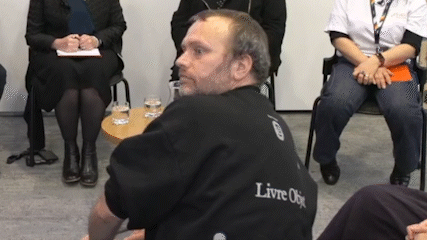I completed my PhD in mid 2023 and it has now been marked etc and I’m officially a Doctor! Abstract is below and you can download the full text here.
Abstract
The contemporary re-emergence of the modular synthesiser as a popular tool for music making sits in contrast to much of the development and design of other electronic music-making equipment over the past forty years. The modular synthesiser user eschews, the convenience and recallability enabled by digital and computer-based instruments and tools, thus challenging understandings of the relationship between electronic music composers and technology.
This research project explores how modular synthesisers are used, what is valued by musicians and composers in their experiences of working with modular synthesisers, and how modular synthesisers enable these experiences. Driven by an interpretive, phenomenological perspective, I interviewed musicians who use modular synthesisers to capture their interpretations, experiences, values, and drivers behind the use of these instruments in music composition. With creative practice as a research tool, I adopted a reflective process to generate and test concepts, build understanding and empathy with other practitioners, and describe their first-hand experiences of using modular synthesisers.
Four themes emerged from the research:
Instrumentalising the studio refers to the use of a modular synthesiser to incorporate any components or processes of a contemporary electronic music studio into the form of an instrument, that exhibits a level of permanence and physicality enabling it to be learnt, performed, and improvised upon.
Modular synthesisers as compositional tools acknowledges the possibilities for modular synthesisers to generate, organise, and structure musical events at a range of time scales, contrasting this in relation to fixed architecture synthesisers. Modular synthesisers exhibit a range of attributes when used to create musical structure, including real-time manipulation and improvisation of musical structure, and systematisation leading to the potential for chaos and complexity to emerge.
Discovery and co-creation refers to the use of a modular synthesiser as a deliberate strategy to experience a sense of discovery, as sounds and structures emerge that are desired but not planned or preconceived. To achieve this the musician gives over a level of agency to the instrument so that they and the machine are in a process of co-creation.
A range of legacies and diversions from the historic origins of modular synthesisers are identified under the theme of the contemporary modular synthesiser. The original intention to enable the possibilities of the tape music studio to be performed and improvised remains, but the inclusion of digital modules and the plethora of manufacturers producing modules for the Eurorack format significantly impacts experiences of contemporary modular synthesisers.

